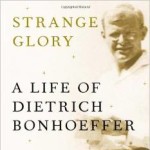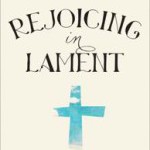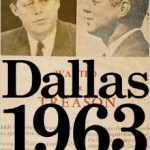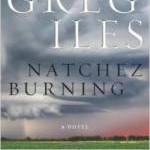I love to read. I find it helpful to summarize my thoughts on each book and I offer those thoughts in the hope that you will be encouraged to either read or pass over the given title.
 Strange Glory: The Life of Dietrich Bonhoeffer by Charles Marsh. At an upcoming doctoral seminar on “20th Century Spirituality” I get to lead the discussion on Dietrich Bonhoeffer’s spirituality. In order to help sharpen my understanding of his life’s finer points I picked up Marsh’s recent biography of the German giant. Strange Glory is the best—and most provocative—volume on Bonhoeffer I’ve yet to read. Its greatest strength lies in Marsh’s grasp of Bonhoeffer’s theological and philosophical development throughout his career, which makes sense when you discover Marsh did his PhD on Bonhoeffer’s philosophical thought. The chapter on Bonhoeffer’s first sojourn in America is alone worth the price of the book. Marsh has ignited much furor over his assertion in the book that Bonhoeffer was romantically attracted to his best friend Eberhard Bethge. While Marsh lets this fascination overshadow too many parts of his narrative I think, on the whole, Marsh is on to something worth deeper reflection.
Strange Glory: The Life of Dietrich Bonhoeffer by Charles Marsh. At an upcoming doctoral seminar on “20th Century Spirituality” I get to lead the discussion on Dietrich Bonhoeffer’s spirituality. In order to help sharpen my understanding of his life’s finer points I picked up Marsh’s recent biography of the German giant. Strange Glory is the best—and most provocative—volume on Bonhoeffer I’ve yet to read. Its greatest strength lies in Marsh’s grasp of Bonhoeffer’s theological and philosophical development throughout his career, which makes sense when you discover Marsh did his PhD on Bonhoeffer’s philosophical thought. The chapter on Bonhoeffer’s first sojourn in America is alone worth the price of the book. Marsh has ignited much furor over his assertion in the book that Bonhoeffer was romantically attracted to his best friend Eberhard Bethge. While Marsh lets this fascination overshadow too many parts of his narrative I think, on the whole, Marsh is on to something worth deeper reflection.
 Rejoicing in Lament: Wrestling with Incurable Cancer & Life in Christ by Todd Billings. We need more books like this one: theologically rich, biblically insightful, and pastorally wise treatment of a sensitive subject. I read Rejoicing in Lament with a church member who just lost a child and Billings’ has been a wonderful companion through the pain. He rightly wants to restore a biblical place for lament in the Christian life and eloquently models faithful lamentation. Quite possibly—for me at least—the greatest parts of the the book are when Billings reflects on how to best care for those going through cancer and facing immanent death. Rejoicing in Lament is a brave book that I’d love to see everyone read.
Rejoicing in Lament: Wrestling with Incurable Cancer & Life in Christ by Todd Billings. We need more books like this one: theologically rich, biblically insightful, and pastorally wise treatment of a sensitive subject. I read Rejoicing in Lament with a church member who just lost a child and Billings’ has been a wonderful companion through the pain. He rightly wants to restore a biblical place for lament in the Christian life and eloquently models faithful lamentation. Quite possibly—for me at least—the greatest parts of the the book are when Billings reflects on how to best care for those going through cancer and facing immanent death. Rejoicing in Lament is a brave book that I’d love to see everyone read.
 Dallas, 1963 by Bill Minutaglio and Steven Davis. I seem to increasingly have an armchair historian’s interest in the 1960s. The Cold War drama, Camelot-Court-like White House, Civil Rights movement, and general sociological upheaval is quite engrossing. Dallas, 1963 analyzes all of these things as they came to a boiling point in my backyard. The book starts well by promising to recount the political atmosphere of the city where Kennedy would be assassinated. The authors’ initial return on their promise is fascinating, but soon it devolves into some strange liberal fascination with General Edwin Walker—as if Walker was the typological Texan.
Dallas, 1963 by Bill Minutaglio and Steven Davis. I seem to increasingly have an armchair historian’s interest in the 1960s. The Cold War drama, Camelot-Court-like White House, Civil Rights movement, and general sociological upheaval is quite engrossing. Dallas, 1963 analyzes all of these things as they came to a boiling point in my backyard. The book starts well by promising to recount the political atmosphere of the city where Kennedy would be assassinated. The authors’ initial return on their promise is fascinating, but soon it devolves into some strange liberal fascination with General Edwin Walker—as if Walker was the typological Texan.
Don Graham, professor of history at the University of Texas, is spot on when he says, “Minutaglio and Davis are like a team of U.N. inspectors visiting a country where buried canisters of noxious verbal gas have been left behind for a new generation to discover and, if they’re of a sufficiently liberal mind, to savor how bad those days were, how much hatred there was in Dallas. But the streets of the city that day in November were packed with thousands of people — estimates run to more than 100,000 — who didn’t hate at all, who were excited to see the president and his beautiful wife and who lived in that other Dallas that [the authors are not] much interested in.”
 Natchez Burning by Greg Iles. Natchez Burning was my favorite fiction book of 2014. I recently read it again in preparation for the trilogy’s second installment, which landed last week. And it was as good as ever on a second read. Full of tension, historical interest, Civil Rights drama, and page-turner mystery, this book is a fantastic summer read. I can only hope the second volume keeps this trilogy’s literary train flying down the tracks . . . bring on The Bone Tree.
Natchez Burning by Greg Iles. Natchez Burning was my favorite fiction book of 2014. I recently read it again in preparation for the trilogy’s second installment, which landed last week. And it was as good as ever on a second read. Full of tension, historical interest, Civil Rights drama, and page-turner mystery, this book is a fantastic summer read. I can only hope the second volume keeps this trilogy’s literary train flying down the tracks . . . bring on The Bone Tree.
Click here to find other entries in the Recent Reads series.
